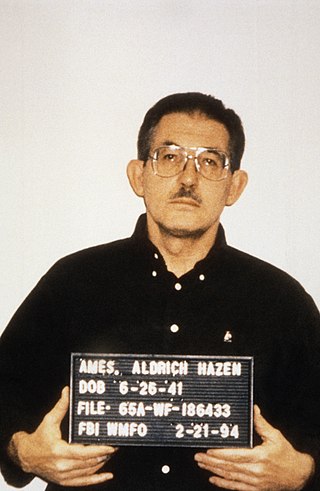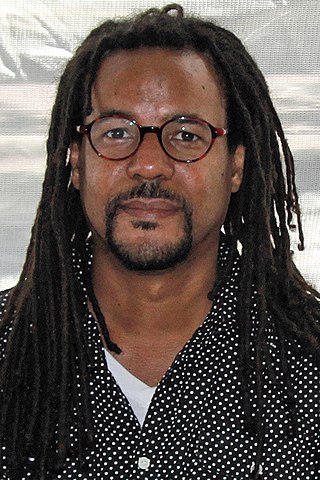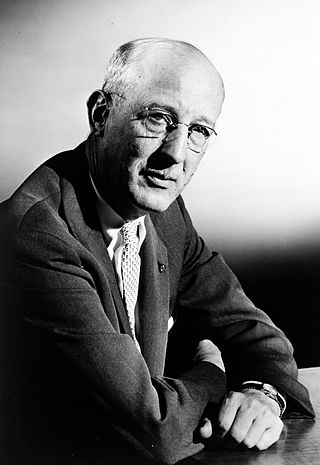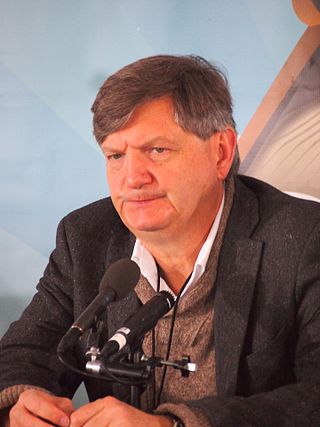
Aldrich Hazen Ames is an American former CIA counterintelligence officer who was convicted of espionage on behalf of the Soviet Union and Russia in 1994. He is serving a life sentence, without the possibility of parole, in the Federal Correctional Institution in Terre Haute, Indiana. Ames was known to have compromised more highly classified CIA assets than any other officer until Robert Hanssen, who was arrested seven years later in 2001.
Cornelius Mahoney Sheehan was an American journalist. As a reporter for The New York Times in 1971, Sheehan obtained the classified Pentagon Papers from Daniel Ellsberg. His series of articles revealed a secret United States Department of Defense history of the Vietnam War and led to a U.S. Supreme Court case, New York Times Co. v. United States, 403 U.S. 713 (1971), which invalidated the United States government's use of a restraining order to halt publication.

Anne Elizabeth Applebaum is an American journalist and historian. She has written extensively about the history of Communism and the development of civil society in Central and Eastern Europe. Applebaum also holds Polish citizenship.

Shtora-1 is an electro-optical active protection system or suite for tanks, designed to disrupt the laser designator and laser rangefinders of incoming anti-tank guided missiles (ATGMs). The system is mounted on the Russian T-80 and T-90 series tanks and the Ukrainian T-84. The existence of Shtora was revealed in 1980 by spy Adolf Tolkachev.

Richard Lee Rhodes is an American historian, journalist, and author of both fiction and nonfiction, including the Pulitzer Prize-winning The Making of the Atomic Bomb (1986), and most recently, Energy: A Human History (2018).

Arch Colson Chipp Whitehead is an American novelist. He is the author of nine novels, including his 1999 debut The Intuitionist; The Underground Railroad (2016), for which he won the 2016 National Book Award for Fiction and the 2017 Pulitzer Prize for Fiction; and The Nickel Boys, for which he won the Pulitzer Prize for Fiction again in 2020, making him one of only four writers ever to win the prize twice. He has also published two books of nonfiction. In 2002, he received a MacArthur Fellowship.

Charles Bruce Catton was an American historian and journalist, known best for his books concerning the American Civil War. Known as a narrative historian, Catton specialized in popular history, featuring interesting characters and historical vignettes, in addition to the basic facts, dates, and analyses. His books were researched well and included footnotes. He won the Pulitzer Prize for History and the National Book Award for Nonfiction in 1954 for his book A Stillness at Appomattox (1953), a study of the final campaign of the war in Virginia and third book in his Army of the Potomac trilogy.
Operation Ivy Bells was a joint United States Navy, Central Intelligence Agency (CIA), and National Security Agency (NSA) mission whose objective was to place wire taps on Soviet underwater communication lines during the Cold War.
Adolf Georgiyevich Tolkachev was a Soviet electronics engineer. He provided vital documents to the United States Central Intelligence Agency (CIA) between 1979 and 1985. Working at the Soviet radar design bureau Phazotron as one of the chief designers, Adolf Tolkachev gave the CIA complete detailed information about projects such as the R-23, R-24, R-33, R-27, and R-60, S-300 missile systems; fighter-interceptor aircraft radars used on the MiG-29, MiG-31, and Su-27; and other avionics. KGB Police executed him in Moscow for being a spy in 1986.

James Risen is an American journalist for The Intercept. He previously worked for The New York Times and before that for Los Angeles Times. He has written or co-written many articles concerning U.S. government activities and is the author or co-author of two books about the Central Intelligence Agency (CIA) and a book about the American public debate about abortion. Risen is a Pulitzer Prize winner.
Fedora was the codename for Aleksey Kulak (1923–1983), a KGB-agent who infiltrated the United Nations during the Cold War. One afternoon in March 1962, Kulak walked into the FBI's NYC field office in broad daylight and offered his services. Kulak told his American handlers there was a KGB mole working at the FBI, leading to a decades-long mole hunt that seriously disrupted the agency. Although the FBI's official position for a few years in the late 1970s and early 1980s was that Fedora had been Kremlin-loyal all along, that position was reversed to its original one in the mid-1980s, and Fedora is now said by the Bureau to have been spying faithfully for the FBI from when he "walked in" in March 1962 until he returned to Moscow for good in 1977.

Tim Weiner is an American reporter and author. He is the author of five books and co-author of a sixth, and winner of the Pulitzer Prize and National Book Award.
Howard Blum is an American author and journalist. Formerly a reporter for The Village Voice and The New York Times, Blum is a contributing editor at Vanity Fair and the author of several non-fiction books, including the New York Times bestseller and Edgar Award winner American Lightning.
The 2010 Pulitzer Prizes were awarded on Monday, April 12, 2010. In journalism, The Washington Post won four awards while The New York Times won three. For the first time, an online source, ProPublica, won in what had previously been the sole province of print. A musical, Next to Normal, won the Drama award for the first time in 14 years. Country singer-songwriter Hank Williams, who died at age 29 in 1953, received a special citation. The winner(s) in each category are:

The Dead Hand: The Untold Story of the Cold War Arms Race and its Dangerous Legacy is a 2009 book written by David E. Hoffman, a Washington Post contributing editor. It was the winner of the 2010 Pulitzer Prize for General Nonfiction.
Joby Warrick is an American journalist who has worked for The Washington Post since 1996, mostly writing about the Middle East, diplomacy, and national security. He has also written about the intelligence community, the proliferation of weapons of mass destruction and the environment, and has also served as a member of the Post's investigation branch. His work has been recognized with two Pulitzer Prizes.
David Henry Blee served in the Central Intelligence Agency (CIA) from its founding in 1947 until his 1985 retirement. During World War II in the Office of Strategic Services (OSS), he had worked in Southeast Asia. In the CIA, he served as Chief of Station (COS) in Asia and Africa, starting in the 1950s. He then led the CIA's Near East Division.
Monte Reel is an American author and journalist. His narrative nonfiction books include The Last of the Tribe (2010), Between Man and Beast (2013), and A Brotherhood of Spies (2018). From 2004 to 2008, he was the South America correspondent for The Washington Post and previously, he wrote for The Washington Post in Washington and Iraq.

The Billion Dollar Spy: A True Story of Cold War Espionage and Betrayal is a non-fiction history book by David E. Hoffman.











